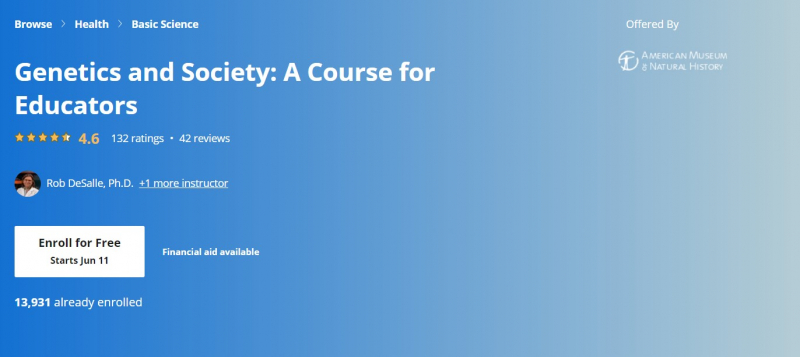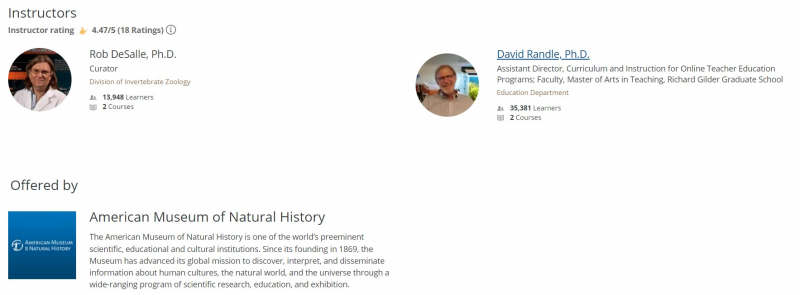Genetics and Society: A Course for Educators

How have genetic advances impacted society? What information do you need to make ethical judgments concerning genetic technologies? This course covers cloning, genetic enhancement, and genetic information ownership. Participants will gain the skills needed to investigate the ethics of contemporary genetics and learn how to incorporate these topics into their classes.
In this course, you will explore the history of genetics and genomics and be introduced to ways of thinking ethically about issues involving genetic technology. You will learn how ethical issues can be used to spark your students’ interest and how to uncover students’ misconceptions. You will explore systems biology, stem cells, and cloning and the applications of these technologies. You will also learn about the ethics of cloning, which will be the basis for your written assignment, which opens this week. You will see how genetic information is being used to individualize medical treatments and take a video tour of the Sackler Institute for Comparative Genomics at the American Museum of Natural History. You will also apply the science and engineering practices from A Framework for K-12 Science Education and the Next Generation Science Education Standards in considering how to engage students in discussion about ethics. You will learn about the societal implications of genetically modified food and discuss ways to incorporate this issue into your teaching.
Dr. DeSalle works in molecular systematics, microbial evolution, and genomics. His current research concerns the development of bioinformatic tools to handle large-scale genomics problems using phylogenetic systematic approaches. Dr. DeSalle has worked closely with colleagues from Cold Spring Harbor Labs, New York University, and the New York Botanical Garden on seed plant genomics and the development of tools to establish gene family membership on a genome-wide scale. His group also focuses on microbial genomics, taxonomy, and systematics. In particular, they approach tree-of-life questions concerning microbial life using whole genome information. He also dabbles in Drosophila systematics. Dr. David Randle joined the American Museum of Natural History’s Education Department after a 15-year career as a science teacher in the New York City public schools. He is currently the Assistant Director of Curriculum and Instruction and works on programs for teachers through Seminars on Science, the Museum’s online graduate level professional development program, and in face-to-face programs through the Museum’s Gottesman Center for Science Teaching and Learning.
Dave began his education career in 1988 as an intern in the Museum’s Education Department. From there, he began teaching science at Middle School 44, located across the street from the Museum, where he helped develop a partnership with AMNH. The goal of the school’s curriculum was to turn the museum's halls into classrooms and to infuse museum-related topics into all subject areas. Each week, students spent a three-period block of time in the exhibit halls. Dave spent many hours in the museum, teaching students and designing a rich variety of activities in many of the halls. After leaving MS 44, he spent four years as a teacher at the Beacon School, an alternative public high school near Lincoln Center in Manhattan. There, he taught physics, biology, museum science, and blues band before coming to work at the museum.
Dave has been a member of the Seminars on Science team since 2000 and has worked full-time at AMNH since 2004. He recently completed a Ph.D. in Science Education at Columbia University. His research interests relate to how teachers learn science online.
This course offers
- Flexible deadlines
- Shareable Certificate
- 100% online
- It takes approximately 8 hours to complete.
- Subtitles: Arabic, French, Portuguese (European), Italian, Vietnamese, German, Russian, English, Spanish
Coursera rating: 4.6/5
Enroll here: https://www.coursera.org/learn/genetics-society#about










